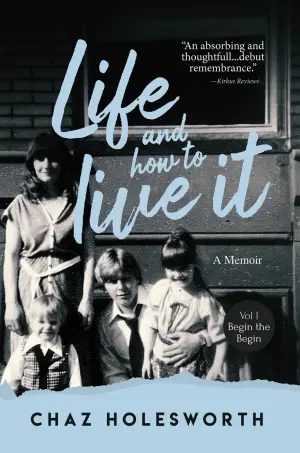Many young writers struggle to find their voice, develop strong ideas, or even determine where to begin. The writing world can feel intimidating, filled with mysterious processes and the fear of judgment. Understanding how to navigate these challenges is essential for budding authors.
Table of Contents
The Importance of Reading
One of the best ways for young writers to improve their craft is to read—lots of it. Reading different genres expands your vocabulary, introduces you to various writing styles, and gives you insights into character development and dialogue.
Example: Think of a young writer who loves fantasy. By immersing themselves in the works of J.R.R. Tolkien and J.K. Rowling, they can pick up on world-building techniques and narrative structures. Ideally, a young writer would not just consume these texts but actively analyze them. What makes a character relatable? How does the author build tension? This analytical approach can enhance one’s own writing skills.
Write Regularly
Writing is like any other skill: the more you practice, the better you get. Encourage young writers to develop a daily writing habit, even if writing only takes 15 minutes.
Example: A high school student sets a goal to write one page a day about their summer vacation. This exercise helps them clarify their thoughts and improve their descriptive language. After a month, the student creates an account filled with vivid details and sharp observations that once felt scattered.
Don’t Be Afraid to Experiment
Many young writers feel pressure to stick to a single genre or style. This pressure can stifle creativity. Exploring different genres can help writers discover their unique voice.
Example: A young writer may start with poetry but later explore short stories or even a screenplay. Trying different types of writing helps the writer notice a knack for crafting dialogue that makes their stories stand out. They might try writing a story in the style of a graphic novel, even if they’re unsure of how to illustrate the panels. This habit of trying new forms teaches valuable lessons about pacing a story and showing how characters interact.
Set Goals for Your Writing
Goals provide young writers with direction and a sense of accomplishment. Setting specific, measurable, achievable, relevant, and time-bound (SMART) goals can accelerate their progress.
Example: Instead of saying, “I want to write a book sometime,” a more effective goal would be: “I will finish my first draft by the end of the summer.” This type of goal forms a concrete plan, making it easier to track progress.
Seek Feedback and Revise
Feedback can be both a blessing and a curse, but it is invaluable for growth. Young writers should learn to accept constructive criticism as a tool for improvement.
Example: Suppose a writer shares their short story with peers at a local writer’s group. They receive feedback about their characters appearing one-dimensional. Rather than feeling discouraged, they take this information to heart. During the revision process, they deepen the characters’ backstories and add subplots that introduce conflict. The story gains depth and resonates more with readers.
Build a Writing Community
Finding and connecting with fellow writers can be hugely beneficial. A supportive community provides encouragement, feedback, and motivation.
Example: A young writer joins an online forum for aspiring authors. Here, they share snippets of their work and receive both praise and constructive feedback. This interaction not only fosters a sense of accountability but also broadens their perspective and introduces them to new ideas and techniques.
Embrace Mistakes
Mistakes are an essential part of the learning process. Young writers must understand that even the most seasoned authors make errors. Instead of being discouraged by blunders, they should view them as learning opportunities.
Example: A young writer might create a plot hole that causes a budding story to lose momentum. Rather than giving up, they can rework the plot to fill the gap. This process often leads to more creative solutions than they initially imagined, sparking fresh ideas for future works.
Cultivate Curiosity
Curiosity fuels creativity. Young writers should maintain a curious mindset about the world around them. Observing people, places, and situations can provide rich material for their writing.
Example: A teenager who is intrigued by their neighbor, an eccentric artist, can turn this curiosity into rich character material. They may start a story inspired by that artist’s life, creating unique attributes and motivations based on what they gather from casual conversations and observations.
Learn About the Publishing Industry
Understanding the publishing landscape is crucial for young writers aiming to get their work into readers’ hands. They should familiarize themselves with various publishing options, from traditional routes to self-publishing.
Example: A young author pens a mystery novel and initially dreams of getting an agent to pursue traditional publishing. However, through research, they discover self-publishing platforms that allow them to control the entire process—from cover design to marketing. They weigh the pros and cons and decide that self-publishing aligns more closely with their goals and timeline.
Find Your Writing Environment
Everyone has a unique writing atmosphere that reignites creativity. Young writers should experiment to find the environment that sparks their inspiration.
Example: A young writer might start in a noisy café filled with chatter and music, but realize they write half as well as they do in the cozy confines of their bedroom with minimal distractions. Creating a dedicated writing space can lead to increased productivity and help ideas grow naturally.
Emphasize Revision
Many young writers view the first draft as the final product. They miss out on the essential editing phase, which is where the real magic happens. Learning to revise is crucial for perfecting their work.
Example: A young novelist completes their manuscript, brimming with pride. However, when they begin the revision process, they discover areas that need tightening. This editing step may include cutting unnecessary words or rephrasing awkward sentences. Through diligent revision, the original manuscript transforms into a polished piece ready for readers.
Use Writing Prompts
Writing prompts can help break through writer’s block and inspire creativity. They provide a launching point for many forms of writing and can be a source of unexpected ideas.
Example: A young writer struggles to keep momentum in their daily writing routine. They discover a website dedicated to daily prompts. One day, they see a prompt about a secret door that leads to another universe. This idea sparks a new short story that revitalizes their drive to write.
Attend Workshops or Classes
Participating in writing workshops or classes can provide valuable insights and enhance skills. They often cover various aspects of writing, from character creation to structuring a narrative.
Example: A high school student enrolls in a summer writing workshop. Through guided exercises and guided critiques, they learn techniques they never considered before. Additionally, they make connections with other writers who share similar passions.
Experiment with Diverse Perspectives
Many young writers prefer point-of-view narratives that feel familiar. Switching perspectives can create refreshing twists and deepen narratives.
Example: A writer who usually focuses on first-person narration might try third-person to tackle the same story. This new lens enables more complexity in storytelling, with various character insights enhancing the overall narrative.
Show, Don’t Tell
This classic writing axiom emphasizes that it’s more effective to demonstrate a character’s feelings through action rather than merely stating them.
Example: Instead of writing, “Sarah was sad,” a young writer might illustrate her emotions through behavior: “Sarah stared at the ground as she shuffled her feet, her shoulders drooped, and she picked at the loose thread on her sweater.” This technique helps readers connect more closely with the character and experience the character’s emotions firsthand.
Trust the Process
Writing is a journey that varies for everyone. Young writers must learn to trust their process and allow themselves the grace to grow over time.
Example: A writer submitting their work may face multiple rejections. Instead of feeling disheartened, they remind themselves that each rejection opens an opportunity to improve and refine their craft. With resilience and dedication, they continue to submit and learn until they eventually find a home for their writing.
Keep a Journal
Journals can serve as a creative space for young writers to experiment, brainstorm, and capture fleeting ideas. Writing freely can enhance creativity.
Example: A student keeps a journal and jots down everything—snippets of dialogue, favorite quotes, and interesting ideas. This treasure trove becomes a valuable resource for inspiration when they are working on larger pieces.
Develop a Strong Online Presence
In the digital age, maintaining an online presence is essential for aspiring writers. Through social media, personal blogs, and authors’ websites, young writers can develop an audience.
Example: A young author starts a blog where they post about their writing journey, share snippets of their work, and discuss writing tips. This blog not only builds a following but also establishes them as a serious writer in their sphere.
Network with Professionals
Young writers must create relationships within the writing community, including reaching out to established authors and industry professionals.
Example: A young writer attends a local literary event and has the chance to speak with a published author. The writer describes the story’s main idea and seeks advice. This conversation can spark mentorship opportunities or invaluable tips that improve their writing journey.
Take Breaks
Sometimes stepping away from writing can lead to breakthrough ideas. Young writers should not feel guilty about taking breaks to recharge.
Example: When a writer faces burnout during an intense editing process, they decide to take a weekend off to enjoy nature. After returning, the writer sees the project with a new perspective and feels energized to create again.
Stay True to Your Voice
As young writers develop their skills, it’s essential to stay true to their own voice and style.
Example: A writer may admire popular authors and attempt to mimic their style. However, they must identify and cultivate their own authentic voice. This authenticity will resonate more deeply with readers.
Additional Information
Young writers often overlook some key strategies that can help them elevate their craft and navigate the publishing world more effectively.
- Write Every Day: Establishing a daily writing routine, even if it’s just for 15 minutes, can significantly improve your skills and build discipline.
- Read Widely: Explore different genres and styles. This approach exposes you to diverse voices and techniques that can enrich your own writing from unexpected angles.
- Join a Writing Group: Collaborating with peers can provide valuable feedback, motivation, and a sense of community. Plus, it’s a great way to meet fellow book lovers.
- Embrace Revisions: First drafts are never flawless. Most of the magic happens in the rewriting process, so don’t shy away from making bold changes.
- Study Story Structure: Understanding the elements of a successful story, such as the three-act structure, can help you plot your narratives more effectively.
- Experiment with Voice: Don’t be afraid to try different perspectives or styles. This experimentation can often lead to discovering your unique voice.
- Utilize Writing Prompts: Writing prompts can ignite your creativity and help you overcome writer’s block by encouraging you to think outside your usual themes.
- Network Online: Platforms like social media and writing forums provide opportunities to connect with established authors, publishers, and fellow aspiring writers.
- Learn Basic Marketing: Understanding how to market your work is nearly as vital as writing it. Knowledge of social media promotion or blog creation can significantly enhance your visibility.
- Perseverance is Key: The journey of writing and publishing often comes with rejections. Embrace them as learning experiences instead of roadblocks.
Frequently Asked Questions (FAQs) Related to Tips For Young Writers
Q. What should I write about as a young writer?
A. Write about what interests you. Whether it’s fantasy, science fiction, or even daily life, passion fuels creativity.
Q. How can I improve my writing skills?
A. Read regularly and write every day. The more you read and write, the better you’ll become.
Q. Is it important to have a writing routine?
A. Yes! A routine helps establish discipline. Set aside time each day and stick to it.
Q. Should I share my work with others?
A. Absolutely! Sharing your writing can provide valuable feedback and help you connect with fellow writers.
Q. How do I deal with writer’s block?
A. Take a break, change your writing environment, or try writing something different. Sometimes, a change of scenery gets ideas moving again.
Q. Is it necessary to outline my story before I start writing?
A. Not necessarily. Some writers thrive on outlines, while others prefer to discover the story as they write. Find what works for you.
Q. How do I handle criticism of my writing?
A. Take it as a learning opportunity. Some feedback will miss the mark, but valuable advice can sharpen your skills and make future drafts stronger.
Q. What if I lose motivation to write?
A. Remember why you started writing in the first place. Set small goals and celebrate your achievements, no matter how small.
Q. Can I write in multiple genres?
A. Yes! Experimenting with different genres can enhance your skills and help you find your voice as a writer.
Q. What is the best way to publish my work?
A. You have options: traditional publishing, self-publishing, or even online platforms. Research each method to find the best fit for your writing journey.
Conclusion
Becoming a successful young writer takes time and practice. By reading widely, writing regularly, and embracing feedback, you’ll develop the skills needed to express your unique voice. Remember, every writer started somewhere, and persistence is key. Keep honing your craft, stay curious, and most importantly, enjoy the journey of creating something new. Happy writing!







